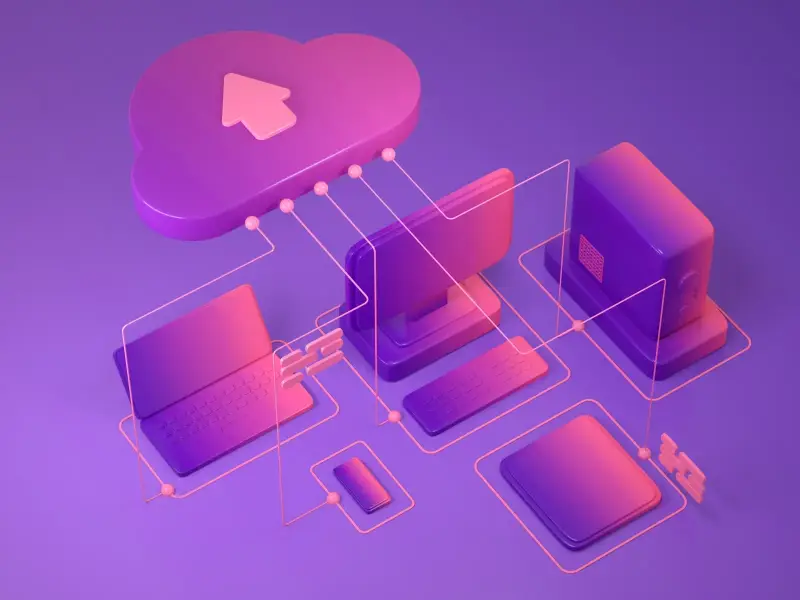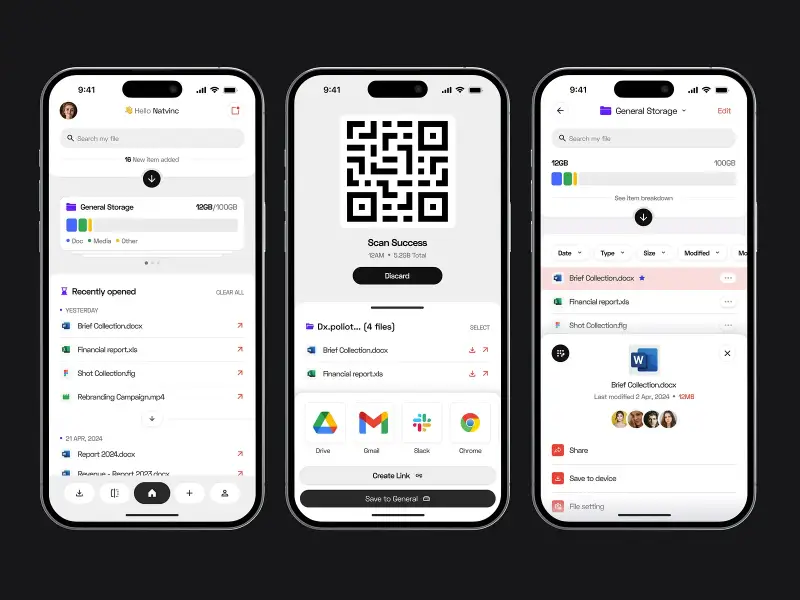Top 6 Picks: Best Programming Language for Cloud Computing
- David Ho
- 0 Comments
It’s not just freelancers or small teams jumping on the cloud anymore. Enterprise-level companies are right there too, and their numbers are climbing fast. Right now, around 68% of large organizations are relying on some kind of managed cloud service. That’s not a trend. That’s a shift.
Why? Because traditional infrastructure just can’t keep up. Businesses need flexibility. They need tools that scale, platforms that stay up-to-date, and services that don’t require a full-time team just to maintain. Cloud computing delivers all of that. And it’s only growing. By 2026, the cloud computing market is forecast to be worth $947.3 billion. That includes infrastructure, platforms, and services bundled into every “as-a-service” model you can think of.
With that kind of momentum, the ecosystem around cloud tech is booming. New tools. Smarter platforms. Better automation. And, of course, a rising demand for developers who know how to build in the cloud. But here’s the thing—cloud development isn’t a one-language-fits-all situation, and choosing the best programming language for cloud computing depends heavily on your project’s goals and environment. There are tons of options, each with its own strengths, quirks, and ideal use cases.
So how do you pick the right one? Or even know where to start? That’s what we’re here for. Let’s talk about the best programming language for cloud computing—the ones that power today’s infrastructure and help businesses scale smarter. The ones companies are hiring for. And the ones that will still matter five years from now.
What Makes a Programming Language Well-Suited for Cloud Computing?
The best programming language for cloud computing should offer certain features that make development easier, faster, and more secure—like scalability, concurrency, and strong integration capabilities. Here are the key traits to look for:
- Scalability
A language should support easy resource scaling to handle growing workloads or sudden traffic spikes. This helps maintain performance, saves costs, and improves overall efficiency in cloud environments. - Concurrency
Cloud applications often run many tasks at the same time. Languages with built-in concurrency support make it easier to write code that performs multiple operations simultaneously. - Performance
Some languages are better optimized for speed and resource use. High-performance languages can handle real-time data, machine learning, and large-scale processing with lower latency. - Portability
Cloud applications need to work across different platforms and operating systems. A portable language allows developers to build flexible solutions without getting locked into a specific cloud provider. - Integration
Cloud apps often rely on other services like databases, APIs, and middleware. A language with strong integration capabilities ensures smooth communication between components and better system performance. - Security
Security is a top priority in the cloud. A good language should support secure coding practices or work well with cloud-based security tools to help protect data and prevent threats. - Community and Libraries
A strong developer community and a wide range of libraries can speed up development. More documentation, tools, and tutorials also mean fewer roadblocks during coding and maintenance.
Learn More On:
6 Best Programming Languages for Cloud Computing
Now let’s get into the good stuff—the actual languages that developers are using to build smart, scalable, cloud-based applications.
Best language for cloud computing
Python
If you’ve touched code in the past few years, chances are you’ve already crossed paths with Python. Created by Guido van Rossum back in 1991, Python has become the go-to language for everything from simple automation scripts to advanced machine learning applications.
It works beautifully in cloud environments, especially when you’re dealing with data-heavy tasks. Think of anything related to AI, ML, or analytics. Python handles it. And thanks to being dynamically typed and interpreted at runtime, it also supports quick prototyping and rapid development cycles. That’s a big win when you’re trying to iterate fast.
One of the biggest reasons developers love Python for the cloud is its massive ecosystem. You’ve got frameworks like Django and Flask for web apps, plus tools like Boto3 for AWS integration. Whether you’re building RESTful APIs, automating cloud services, or training machine learning models in the cloud, Python has a library that can help.
If you’re working with data, building APIs, or automating cloud services, Python is a smart, flexible choice—and one of the strongest contenders for the best programming language for cloud computing in data-driven applications. Making it a strong contender for the best programming language for cloud automation and analytics.
Java
Java has been a staple in software development for decades, and it’s still going strong in the cloud. Originally developed by Sun Microsystems, it’s famous for its “write once, run anywhere” approach, thanks to the Java Virtual Machine (JVM) which makes it highly portable across platforms.
Java’s object-oriented structure is ideal for building complex, scalable applications. It encourages clean, modular code that’s easier to maintain over time—especially useful in large enterprise environments.
With powerful frameworks like Spring Boot and Hibernate, Java makes it easier to build cloud-native apps, RESTful APIs, and large microservices systems. It’s especially popular in industries that rely on reliability and performance at scale.
If you’re working on enterprise-grade cloud solutions, Java remains a dependable and well-supported choice—and for many, it’s considered the best language for cloud computing at scale.
JavaScript (with Node.js)
JavaScript is everywhere, and with Node.js, it becomes a powerful tool for cloud development too. Node.js brings JavaScript to the server side, letting developers build fast, event-driven, non-blocking applications that scale well in the cloud.
Its asynchronous nature makes it ideal for handling real-time data, APIs, and microservices. And because JavaScript runs on both the front end and back end, it’s a natural fit for full-stack development in the cloud.
If you’re building cloud-based web services, JavaScript with Node.js offers speed, flexibility, and a huge ecosystem to support rapid development.
Have a Project Idea in Mind?
Get in touch with experts for a free consultation. We’ll help you decide on next steps, explain how the development process is organized, and provide you with a free project estimate.
Go (Golang)
Go, also known as Golang, is a modern, open-source language created by Google that’s built for the cloud. It’s designed with simplicity and performance in mind, making it an excellent choice for scalable, distributed systems.
One of Go’s standout features is built-in concurrency, which helps developers create efficient, multi-threaded applications that fully leverage cloud resources. Its static typing also reduces runtime errors, adding an extra layer of reliability.
With a strong standard library and efficient memory management, Go makes it easy to build fast, lightweight cloud-native services. It’s a top pick for microservices, APIs, and high-performance backend systems.
Ruby
Ruby is known for its clean, expressive syntax that makes development feel almost effortless. It’s especially popular for building web applications and works well in the cloud, thanks to its flexibility and high developer productivity.
Top cloud programming languages
Ruby’s full object-oriented model and dynamic nature allow for rapid development and easy maintenance. It also integrates smoothly with databases and cloud services, making it great for building data-driven apps.
Most of Ruby’s cloud power comes from Ruby on Rails, a popular framework that streamlines app development by following the “convention over configuration” philosophy. It includes tons of built-in features, supports agile workflows, and reduces the need for boilerplate code.
If you want to build and deploy cloud apps quickly without sacrificing readability or structure, Ruby with Rails is a solid option.
Which is the Best Language for Cloud Development? Final Answer
Let’s be real, there’s no one-size-fits-all answer here. Each programming language brings its own strengths to the table, depending on what you’re building and where it’s running. Some are perfect for rapid prototyping. Others are built for speed, scalability, or seamless cloud integration.
Often, the choice comes down to your project goals, your team’s experience, and how well a language plays with the cloud provider you’re using. And while cloud platforms support a wide range of languages, not all of them are equally optimized for every use case.
To make things easier, here’s a quick rundown of some of the most popular cloud-friendly languages out there, what they’re good at, and where they might fall short.
| Language | What It’s Great At | Where It Struggles |
|---|---|---|
| Python | Beginner-friendly, tons of libraries, great for scripting, automation, and data tasks | Slower execution speed compared to compiled options |
| Java | Rock-solid, scalable, cross-platform, widely used in enterprise environments | Can feel heavy, with lots of boilerplate and longer dev cycles |
| JavaScript (Node.js) | Ideal for full-stack dev, asynchronous by nature, great for real-time apps | Not built for heavy CPU tasks, can get messy with callbacks |
| Go | Fast, lightweight, excellent for concurrent systems and microservices | Still maturing, smaller ecosystem than older giants |
| Ruby | Super productive for rapid development, clean and expressive syntax | Slower runtime, not the best choice for performance-critical workloads |
| C# | Tight integration with Microsoft Azure, high performance, modern tooling support | Mostly tied to the Microsoft stack, plus potential licensing concerns |
Choosing the best programming language for cloud computing isn’t just about popularity or performance benchmarks. It’s about what fits best with your architecture, your workflow, and the type of app you’re building. If you’re diving into cloud development, think about what matters most—speed, simplicity, portability, or cloud-native features.
There’s no wrong answer. Just better fits for different jobs. And once you find that fit, everything from deployment to scaling becomes a whole lot smoother.
Learn More On:
How To Choose a Programming Language for Cloud Computing
Picking the right programming language for cloud development isn’t always straightforward. It’s not just about what’s trending or what sounds cool. It’s about what works best for your project, with your team, on your chosen platform. Here’s how to think it through.
Project Requirements
Start with the problem you’re trying to solve. What kind of app are you building? A web dashboard, a data pipeline, a fleet of microservices?
If it’s a web app that needs to respond in real time, JavaScript with Node.js is a solid choice. If you’re crunching numbers or working with data models, Python might feel more natural. High-performance services that need to handle thousands of concurrent tasks? That’s where languages like Go or C# really shine.
Also think about scalability. If your app needs to grow fast and handle lots of users or traffic, you’ll want a language that supports concurrency and parallelism out of the box. Java and Go are both designed with that in mind.
Best programming language for cloud computing
Existing Expertise
Even the best language won’t help much if your team doesn’t know how to use it. If your developers are already skilled in Python, sticking with it could save weeks of ramp-up time—especially since Python is often seen as the best programming language for cloud computing in data-driven environments. Familiarity leads to faster development, fewer bugs, and less frustration.
Also, consider how easy it is to find help. Languages like Python and JavaScript have massive communities. That means more tutorials, more documentation, and more answers when you hit a wall.
Integration and Ecosystem
Your cloud provider matters here. Some languages are just better supported depending on the platform you’re using.
If you’re building on Microsoft Azure, C# feels like a natural fit. AWS has excellent support for Python, Java, and Node.js. Google Cloud often leans toward Go and Python. The better the integration, the smoother your deployment, monitoring, and scaling processes will be.
And don’t overlook the libraries and frameworks. A strong ecosystem can save you from building everything from scratch. Whether it’s authentication, messaging, or database management, having reliable tools available cuts development time significantly.
Long-Term Maintenance
You’re not building something that runs for a week. You want code that lasts. That means choosing a language with a stable foundation and an active community.
Languages like Java, Python, and C# have been around for a while, and they’re still going strong. Updates, patches, and community support are all part of the package. That kind of reliability matters, especially if this is a long-term project or something that’s going to be maintained by multiple teams over time.
Cost and Efficiency
Cloud costs can add up quickly, especially if your app isn’t running efficiently. Some languages are more lightweight and resource-friendly, which helps reduce your compute and memory usage.
Go is incredibly efficient for cloud-native apps. Python is easy to use but can be slower and more resource-hungry. C# is powerful but may come with licensing costs depending on your setup. Open-source languages usually help keep costs down, especially when it comes to development tools and infrastructure.
It’s not just about how fast your code runs, but how smart it is with resources. That can have a real impact on your monthly cloud bill.
Conclusion
Choosing the best programming language for cloud computing depends on your project’s needs, goals, and long-term vision. From performance and scalability to security and integration, each language offers unique strengths—and picking the best programming language for cloud computing depends on aligning those strengths with your project goals.
If you’re unsure which language fits your next project—or need expert hands to bring your cloud solution to life—TECHVIFY is here to help. Our team of seasoned developers and cloud engineers will guide you through every step, from consultation to deployment. Contact TECHVIFY today for a free consultation and let’s turn your ideas into scalable, secure cloud solutions.
TECHVIFY – Global AI & Software Solution Company
From Startups to Industry Leaders: TECHVIFY prioritizes results, not just deliverables. Accelerate your time to market and see ROI early with high-performing teams, AI (including GenAI) Software Solutions, and ODC (Offshore Development Center) services.
- Email: [email protected]
- Phone: (+84)24.77762.666








